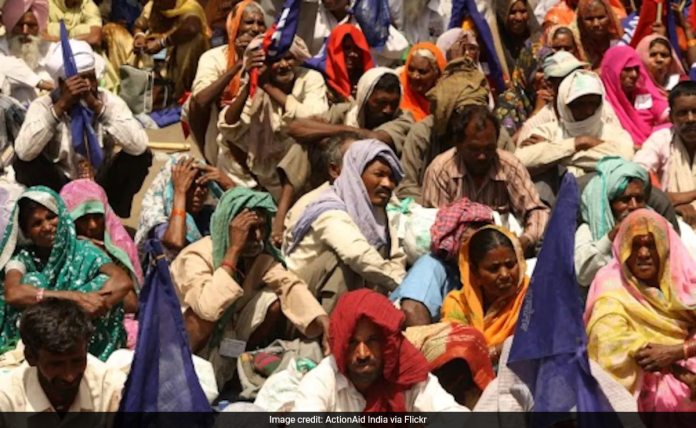
I used to be born within the Indian Railways township of Tundla, a serious junction on the historic Delhi-Howrah trunk route, within the heartland of Uttar Pradesh. The city had a inhabitants of simply 30,000 then, divided nearly equally between the railwaymen and their dependents and ‘the townwallahs‘, because the others – shopkeepers, merchants, professionals and a few farmers – dwelling there have been fondly known as.
Tundla was like a microcosm of India, with folks from all components of the nation, representing all religions, faiths, languages, traditions, colors and festivals, dwelling there. Ramlila, Durga Puja and Guru Parva festivities all the time fascinated me, as did the sombreness of the Muharram processions. No one ever requested me my caste or, for that matter, my faith. My mother and father had been refugees, because of the unlucky Partition. My father needed to depart behind his historical village within the Frontier, bordering Afghanistan, and my mom needed to flee from Mianwali in western Punjab. But it surely didn’t matter to our neighbours or associates. It was a childhood stuffed with carefree pleasure, play and happiness. The entire city was like a household, which might remodel into an enormous mela (a good) on events like Diwali, Durga Puja and ‘chhabbis janvary‘ (January 26, the Republic Day of India). I didn’t know something about caste. Two households dwelling reverse our home had been Dalit, which I had heard – largely in whispers – from the priest of our native temple, however all of us prayed collectively, celebrated collectively, and infrequently ate collectively.
Dealing with The Caste Query
I’m positive the caste fissures had been all there, and possibly profoundly, however they had been beneath the radar, by no means paraded nakedly. Caste was a actuality, an enormous social cleavage in villages simply outdoors our microcosm, however I additionally know for positive that the majority even in these villages would have needed to be like us.
Actually, I didn’t know – and didn’t care to know – my caste till I used to be already settled, had travelled all all over the world, married and even had the primary baby. The 1990 violence over the implementation of the Mandal report shattered me. Instantly, everyone was asking one another about their caste. Should you used solely ‘Kumar’ or ‘Singh’ or ‘Bharti’ as your final identify, folks had been cautious to not offend you, staying impartial on the Mandal debate in social gatherings. It was in such an environment and anxiousness I known as up my father one night to ask him about our ‘caste’. He was baffled. All he managed to say was, “We’re Hindus, Panjabi Hindus.” I endured, “That I do know, however what’s our caste … I imply caste?” I listed out all of the 4 varnas and requested him to tick the proper field. He mentioned, “We’re Arora. I have no idea past that.” There was no Google in these days. My probing ended there, and I didn’t care to search out out extra. Being an Indian was all that mattered to me – and nonetheless does.
The That means Of A Caste Census
However what if a authorities led by events who promote a nationwide caste survey truly conducts such a examine? What in the event that they knock at my door with a prolonged type asking my caste, insisting that I both declare my caste or face punishment? What if they don’t settle for ‘Arora’ as a caste or wouldn’t have it listed of their miles-long listing of all castes, sub-castes and so forth? What if I write solely ‘Hindu Indian’ in response to my caste? I additionally ponder whether leaders from these events, if voted to energy, would make caste declaration necessary for different public companies too: airport immigration counters, banking, and so forth. I ponder whether they ever focus on caste with their very own youngsters on the eating desk.
A caste survey on the nationwide stage would possibly ship some perceived dividends to some political events, however at what price? At the price of dividing a inhabitants of over 750 million younger Indians, particularly these dwelling in city and semi-urban areas, into unfamiliar verticals, and even silos, and putting them in an environment they might be extraordinarily uncomfortable in. Why are a few of our legislators so disconnected from the aspirations and goals of younger Indians? Sure, I do know, caste remains to be a actuality, sadly, in lots of components of the nation. However why not go for scientific surveys, ideally digital, to render India free from ills like illiteracy, poverty, caste system, discrimination in opposition to girls, and so forth, as envisaged within the Structure?
Such surveys can measure, as an example, why some components of the nation have been left behind economically and socially and what must be completed as a nation to drag them into the nationwide mainstream. We’d like research to search out out why not a majority of our schools and universities are pretty much as good as, say, Delhi College or Jamia Millia Islamia. We’d like surveys to know why a lot of younger folks favor authorities jobs over entrepreneurship in some states, why a farmer’s yield remains to be under worldwide requirements, and why there are nonetheless so few new-generation girls entrepreneurs within the nation. All that 1.4 billion Indians need as we speak, in spite of everything, is a united and developed India.
(Narendra Taneja is a senior Bharatiya Janata Occasion chief and well-known vitality knowledgeable)
Disclaimer: These are the private opinions of the writer






































